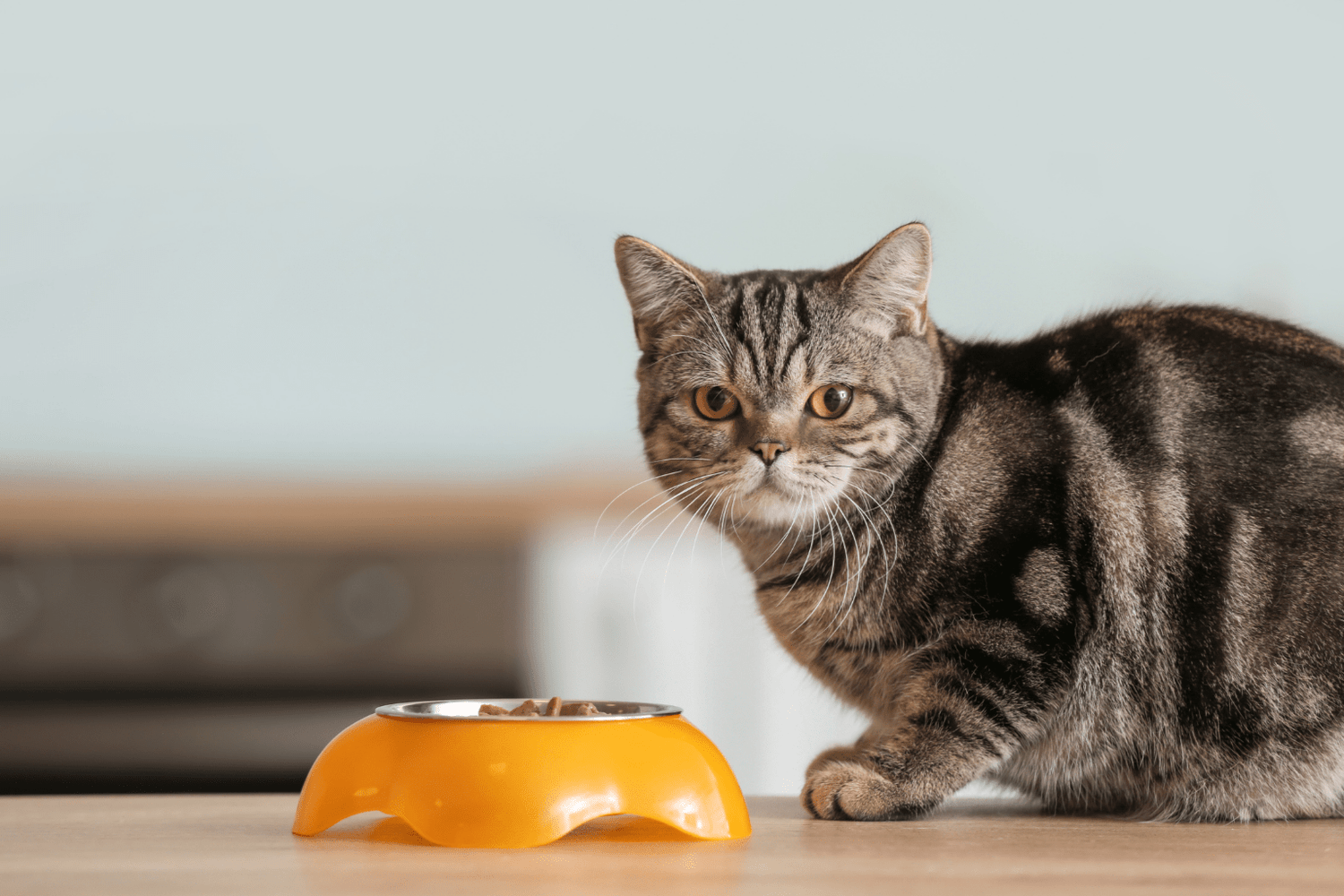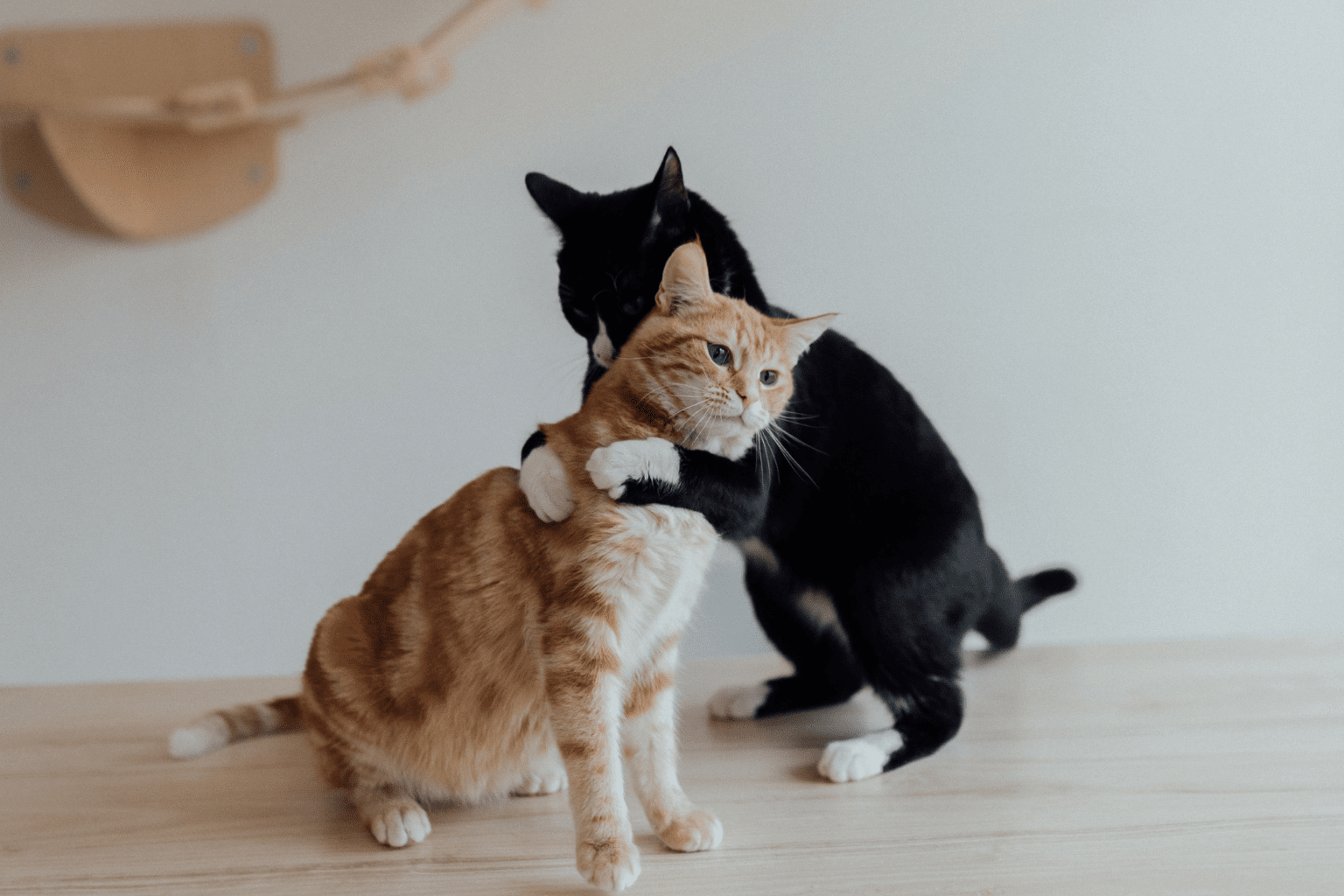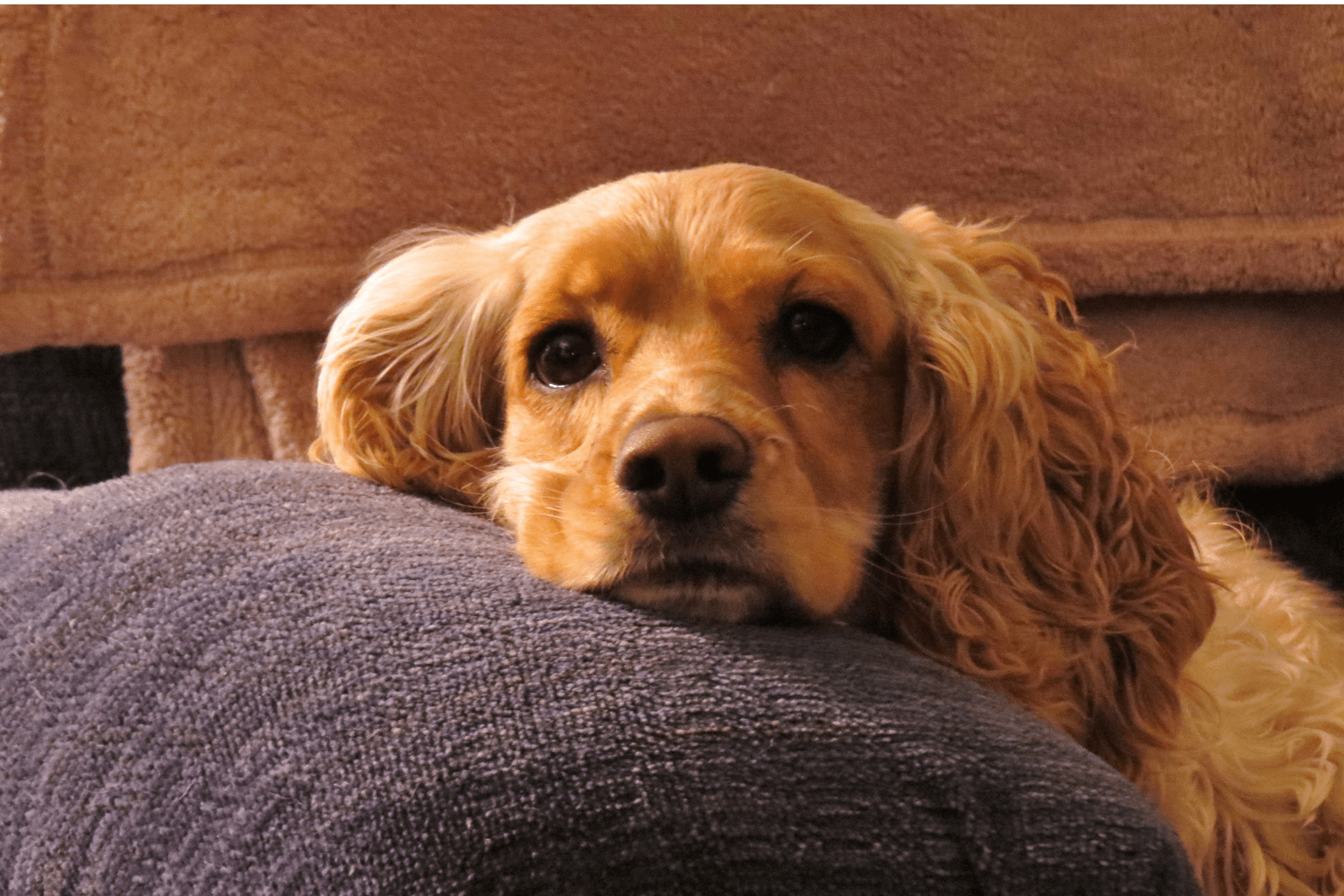Key Takeaways
- Cat regurgitation involves the passive release of undigested food or water from the esophagus.
- It usually occurs minutes after a meal.
- Cat regurgitation is often mistaken for vomiting.
- Understanding cat regurgitation is important for proper diagnosis and care.
Table of Contents
- Cat Regurgitation 101, What's Happening and Why It Matters
- Top Reasons Cats Regurgitate, From Fast Eating to Medical Red Flags
- Regurgitation or Vomiting? Spot the Difference Like a Pro
- "My Cat Regurgitated, Now What?" Step-by-Step Home Actions
- Essential Prevention Tactics, Happier Mealtimes, Fewer Upsets
- When Regurgitation Signals Trouble, Knowing When to Call the Vet
- Natural & Holistic Solutions, How BestLife4Pets Can Help
- Your Gentle Path Forward, Hope, Relief, and Healthy Cats
- FAQ, Your Top Cat Regurgitation Questions, Answered
- The Complete Management Approach, Prevention, Support, and Peace of Mind
Cat Regurgitation 101, What's Happening and Why It Matters
Most cat regurgitation stems from simple mealtime habits. Cats who gobble their food like they're in a race often overwhelm their esophagus, causing undigested kibble to come right back up. Multi-cat households see this frequently, competition for food creates anxious eaters who gulp rather than chew.
Other everyday triggers include drinking large amounts of water right before or after meals, stress during feeding time, or eating cold food straight from the fridge. Senior cats with dental issues may also regurgitate poorly chewed food that's too large to swallow comfortably. For cats with dental pain or missing teeth, Cat Dental Care & Bad Breath Remedy can help support oral health and make eating more comfortable.
However, some causes require closer attention. Structural problems like esophageal narrowing, hiatal hernias, or congenital abnormalities can make swallowing difficult. More serious concerns include tumors, strictures, parasitic infections, or foreign objects lodged in the throat or esophagus. If your cat is experiencing digestive discomfort or frequent regurgitation, consider the Cat Digestive Health Bundle for gentle, natural support.
Top Reasons Cats Regurgitate, From Fast Eating to Medical Red Flags

Most cat regurgitation stems from simple mealtime habits. Cats who gobble their food like they're in a race often overwhelm their esophagus, causing undigested kibble to come right back up. Multi-cat households see this frequently, competition for food creates anxious eaters who gulp rather than chew.
Other everyday triggers include drinking large amounts of water right before or after meals, stress during feeding time, or eating cold food straight from the fridge. Senior cats with dental issues may also regurgitate poorly chewed food that's too large to swallow comfortably.
However, some causes require closer attention. Structural problems like esophageal narrowing, hiatal hernias, or congenital abnormalities can make swallowing difficult. More serious concerns include tumors, strictures, parasitic infections, or foreign objects lodged in the throat or esophagus. For more information on how parasites can affect your cat's digestive health, read does my cat have worms.
The key is observation. Note when regurgitation happens, what your cat ate, and how they're acting overall. Occasional episodes after fast eating are manageable with simple changes, but frequent regurgitation, especially with weight loss or lethargy, deserves professional evaluation and gentle, natural support.
Regurgitation or Vomiting? Spot the Difference Like a Pro
Here's your detective checklist: Did your cat just finish eating and the food looks exactly like it did in the bowl, undigested and tubular? That's regurgitation. Was there dramatic heaving, retching, and partially digested food that's mushy or liquid? That's vomiting.
Watch for the warning signs too. Vomiting vs regurgitation in cats shows different body language. Regurgitating cats simply drop their head and release food passively. Vomiting cats display obvious distress, lip licking, hiding, drooling, and those unmistakable abdominal contractions that make you grab the paper towels.
Bailey, a tabby from our community, perfectly illustrates this difference. Her owner noticed Bailey would "drop breakfast on the mat with no warning, just a quiet release." No sick behavior, no nausea, just undigested kibble appearing minutes after meals. Recognizing this as regurgitation rather than illness helped her owner make the right feeding adjustments and seek appropriate natural support.
"My Cat Regurgitated, Now What?" Step-by-Step Home Actions
Take immediate action calmly. Remove any remaining food and note the episode, time, amount, and appearance of what came up. Offer a small amount of fresh water but never force your cat to drink. Clean the area thoroughly and ensure your cat has a quiet, stress-free space to recover.
Monitor before re-feeding. Wait at least 30-60 minutes before offering food again. When you do, start with a teaspoon-sized portion and watch carefully. Keep a simple log noting frequency, time of day, food type, and what the regurgitated material looked like.
Make strategic adjustments. Elevate your cat's food dish slightly to promote easier swallowing. If you have multiple cats, create separate feeding areas away from noise and competition. Gently warm refrigerated food to room temperature, never serve it cold.
Simba's story shows how simple changes work. His owner discovered that moving his bowl away from the noisy laundry area and switching to smaller, more frequent meals completely stopped his regurgitation episodes. Sometimes the gentlest solutions create the biggest improvements in our cats' comfort and well-being.
Essential Prevention Tactics, Happier Mealtimes, Fewer Upsets

Slow down mealtime naturally. Slow-feeder bowls with raised ridges or puzzle patterns force cats to work around obstacles, naturally pacing their eating. Feed smaller portions 3-4 times daily rather than one or two large meals, think grape-sized portions that prevent esophageal overload. Puzzle feeders or muffin tins with kibble scattered in each cup turn mealtime into a calming activity.
Perfect your food and bowl setup. Soften dry kibble with a teaspoon of warm water and serve everything at room temperature, never straight from the fridge. Let wet food sit out for 15 minutes before serving to remove the chill. Choose shallow, wide dishes that allow easy access without forcing your cat to plunge their head deep into narrow bowls.
Create anxiety-free feeding zones. Feed in quiet, secure locations away from household chaos, other pets, and foot traffic. Remove uneaten food after 15-20 minutes to prevent later binge eating when your cat discovers leftover kibble. If your cat is prone to stress or anxiety during mealtimes, the Cat Anxiety & Stress Relief Bundle can help create a calmer environment and support healthy digestion.
| Tactic | What to Do | Why It Helps |
|---|---|---|
| Slow feeder bowl | Place food in grooved patterns | Forces deliberate, slower eating |
| Small meals | Divide daily food 3-4 times | Prevents esophageal overload |
| Quiet location | Choose calm, secure feeding spot | Eliminates stress-induced gulping |
| Room temperature | Warm cold food before serving | Easier digestion and swallowing |
When Regurgitation Signals Trouble, Knowing When to Call the Vet
When should I worry?
Frequent regurgitation (over 2 episodes monthly), weight loss, lethargy, refusal to eat, blood in regurgitated material, or multiple episodes in one day require immediate professional attention.
Watch for these warning signs. Repeated cat regurgitation combined with dramatic behavior changes, poor coat condition, or visible weight loss suggests underlying issues beyond simple fast eating. Gagging, choking sounds, or obvious difficulty swallowing indicate potential obstructions or structural problems requiring urgent care.
Diagnostic steps help pinpoint causes. Your veterinarian may recommend bloodwork to check for systemic issues, X-rays to identify foreign objects or structural abnormalities, or ultrasounds for detailed soft tissue examination. Complex cases might require referral to specialists for endoscopy procedures. For more on common health issues in older cats, see aging cat common health issues.
Early intervention brings hope. Many cats with regurgitation issues respond beautifully to gentle, natural approaches combined with proper veterinary guidance. The key is recognizing when home management isn't enough and seeking professional support before minor issues become major health concerns.
Natural & Holistic Solutions, How BestLife4Pets Can Help
Gentle homeopathic support works differently. Our tiny, tasteless pellets support your cat's natural digestive processes without the harsh side effects often seen with conventional medications. Unlike liquids that cats resist, our pellets dissolve easily and can be given directly or mixed into food, perfect for "stealth dosing" with finicky felines.
Targeted support for common triggers. Senior cats struggling with dental issues or frequent regurgitation may benefit from our gentle formulas that help maintain smoother digestion and ease mealtime discomfort. Cats with stress-induced digestive upsets often respond well to daily natural support that works with their body's own healing mechanisms. For cats with ongoing digestive or liver concerns, the Cat Hepatic Liver Support Remedy offers additional support for healthy digestion and detoxification.
Simple, effective daily use. Give 3-5 pellets directly by mouth or in food, 2-3 times daily as needed. Our remedies work for both sudden episodes and ongoing support, keep them handy for "just in case" moments since they require no refrigeration and have excellent shelf stability.
Luna's story illustrates this perfectly. This 9-year-old rescue with chronic digestive sensitivity finally found relief with our natural approach. Her favorite part? "No more battles at pill time!" her owner shared. Join our community of pet parents who've discovered that nature's gentle support often provides the comfort our cats need most.
Your Gentle Path Forward, Hope, Relief, and Healthy Cats

No two cats are alike, and what works for one may need adjustment for another. Try different approaches, observe your cat's responses, and don't hesitate to reach out for guidance. With patience, natural support, and sometimes professional veterinary care, cats with regurgitation issues can live comfortable, joy-filled lives.
You're not alone in this journey. Our community of caring pet parents shares experiences, celebrates successes, and supports each other through challenges. Whether you're dealing with occasional episodes or chronic issues, remember that gentle, natural solutions often provide the relief our feline family members need to thrive. For additional reading on the differences between regurgitation and vomiting in cats, see this authoritative veterinary resource.
This information is not a substitute for professional veterinary advice. Always consult your veterinarian for persistent or concerning symptoms.
FAQ, Your Top Cat Regurgitation Questions, Answered
Why does my cat regurgitate right after eating? Fast eating causes food to pile up in the esophagus without reaching the stomach properly. When the esophagus can't handle the volume, it passively releases the undigested food back up, usually within minutes of eating.
How do I tell regurgitation from vomiting? Cat regurgitation happens quickly with no warning signs, producing undigested, tube-shaped food. Vomiting involves active heaving, nausea behaviors like lip-licking or hiding, and produces digested, liquid material that can occur hours after eating.
What feeding changes help prevent regurgitation episodes? Slow-feeder bowls, smaller frequent meals, and room-temperature food make the biggest difference. Elevating the food dish slightly and creating quiet feeding spaces away from other pets reduces stress-induced gulping.
Can dental problems really cause regurgitation? Absolutely. Cats with dental pain or missing teeth often swallow large, poorly chewed pieces that their esophagus can't process effectively. Senior cats especially benefit from softened food and regular dental checkups.
When should frequent regurgitation worry me? More than two episodes monthly, weight loss, lethargy, or blood in regurgitated material requires veterinary attention. Multiple episodes in one day or difficulty swallowing suggests potential obstructions needing immediate care. For more on litter box habits and what they can reveal about your cat's health, check out cat litter box 101.
How do BestLife4Pets remedies support cats with regurgitation? Our gentle homeopathic pellets work with your cat's natural digestive processes to ease discomfort and support smoother digestion. They're perfect for ongoing support in cats prone to stress-induced upsets or senior cats with sensitive systems.
The Complete Management Approach, Prevention, Support, and Peace of Mind
Layer your prevention strategies for maximum success. The most effective approach combines environmental changes (slow feeders, quiet spaces), feeding modifications (smaller meals, proper temperature), and natural support when needed. This comprehensive strategy addresses both immediate triggers and underlying sensitivities that contribute to cat regurgitation episodes. For a broader look at natural supplements for common feline health issues, explore Natural Cat Supplements for Treating Common Health Issues in Cats and Kittens.
Natural support fills the gap between prevention and veterinary intervention. While environmental changes handle most simple cases, some cats need gentle ongoing support for optimal digestive comfort. Our homeopathic approach provides this middle ground, supporting the body's natural processes without the side effects of harsh medications, especially valuable for senior cats or those with chronic sensitivities. For more scientific background on feline gastrointestinal disorders, see this external veterinary study.
Build your long-term success plan. Start with feeding modifications and environmental improvements, then add natural support if episodes continue. Keep detailed records of what works and what doesn't, this information proves invaluable during veterinary consultations and helps you fine-tune your approach. Remember that some cats need several weeks to fully adapt to new feeding routines.
Future-Proof Your Cat's Digestive Health:
As cats age, their digestive systems become more sensitive. Establishing gentle feeding routines and having natural support options ready prevents minor issues from becoming major concerns. Proactive care today means fewer emergency vet visits tomorrow.
Success looks different for every cat, but the goal remains the same: comfortable, stress-free mealtimes that nourish rather than distress. With patience, observation, and the right combination of environmental changes and natural support, most cats with regurgitation issues can return to enjoying their meals without discomfort. Trust the process, stay consistent with your chosen approach, and remember that small improvements often lead to significant long-term benefits for your feline family member.
Frequently Asked Questions
What are the main differences between cat regurgitation and vomiting, and how can I tell them apart?
Cat regurgitation is a passive release of undigested food or water, usually occurring shortly after eating, without the effort or nausea seen in vomiting. Vomiting involves active abdominal contractions and often brings up partially digested food or bile. Watching your cat’s behavior during the event, whether they strain or seem relaxed, can help you tell the difference.
What common mealtime habits contribute to cat regurgitation, and how can I modify feeding routines to prevent it?
Cats that eat too quickly, drink large amounts of water around mealtime, or feel stressed while eating often regurgitate. To help, try feeding smaller, slower meals more frequently, elevate food bowls, and create a calm, quiet feeding space. These simple changes can ease your cat’s swallowing and digestion.
When should I be concerned about my cat's regurgitation and seek veterinary care?
If regurgitation happens often, contains blood, or comes with signs like lethargy, weight loss, or difficulty swallowing, it’s time to check in with your vet. Persistent or worsening symptoms may signal underlying issues needing professional attention.
How do medical conditions like esophageal issues or dental problems affect cat regurgitation, and what treatments are available?
Structural problems in the esophagus or dental pain can make swallowing uncomfortable, leading to regurgitation. Supporting your cat’s oral health with remedies like our Cat Dental Care & Bad Breath Remedy and gently supporting digestion with the Cat Digestive Health Bundle may help. Always consult your vet for diagnosis and tailored care.



